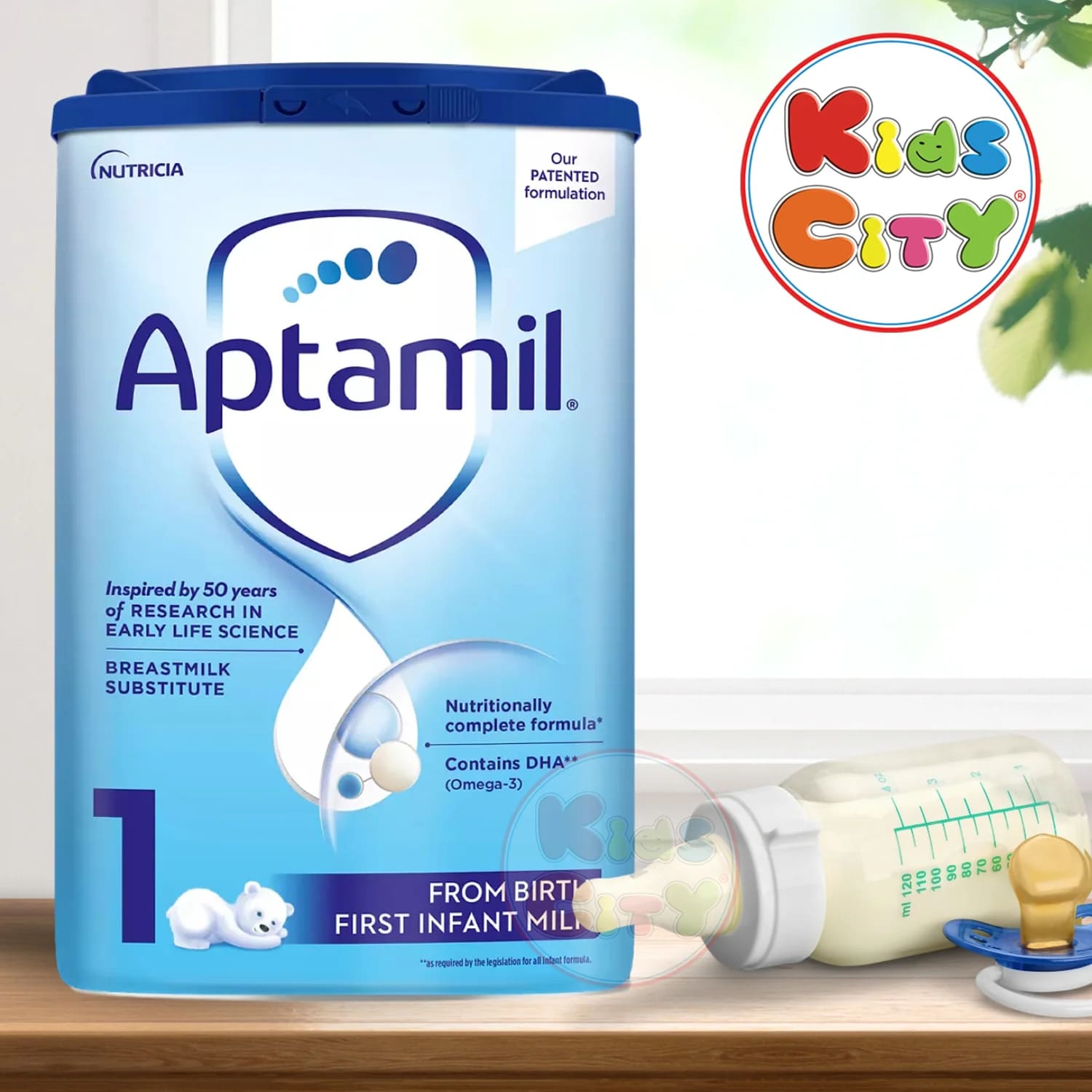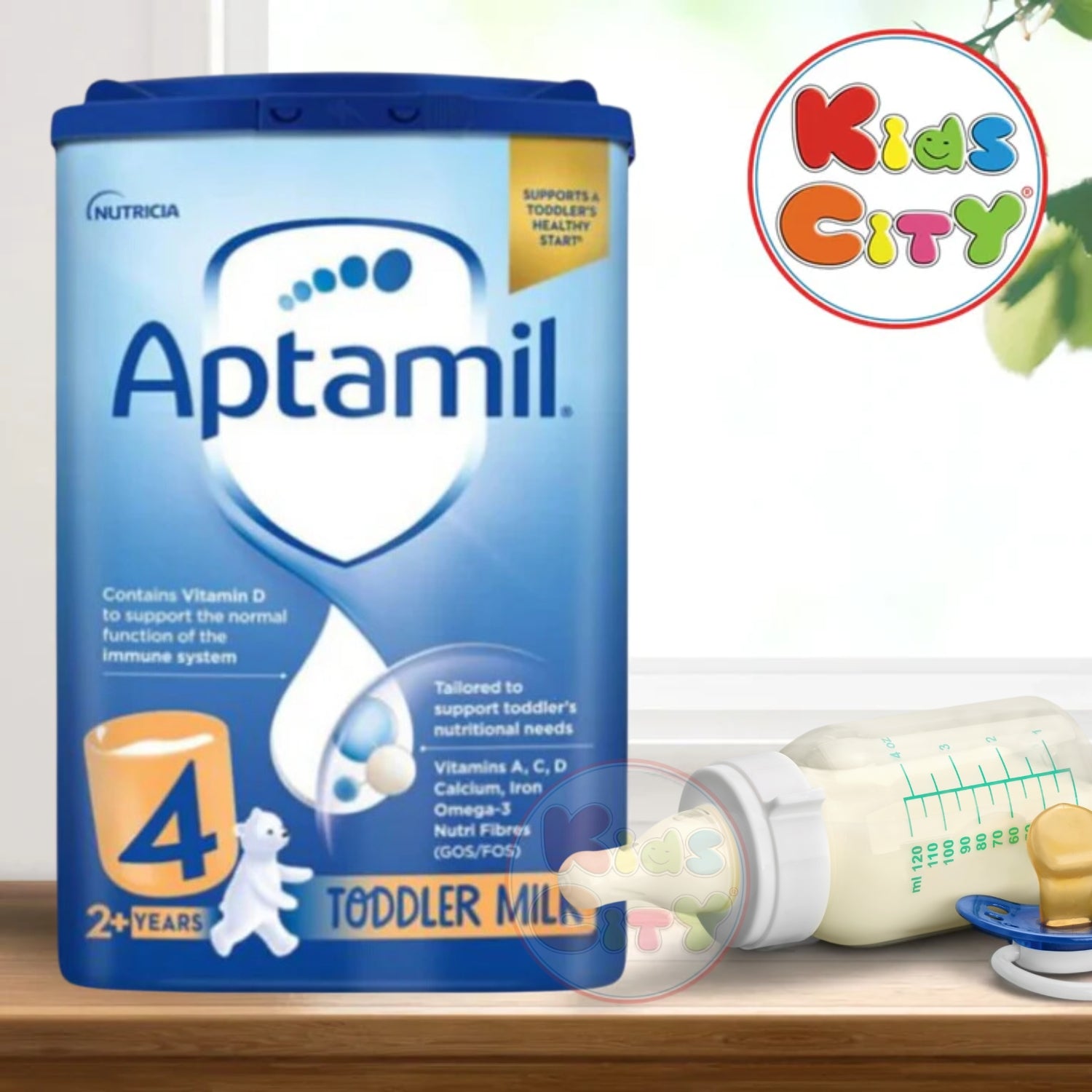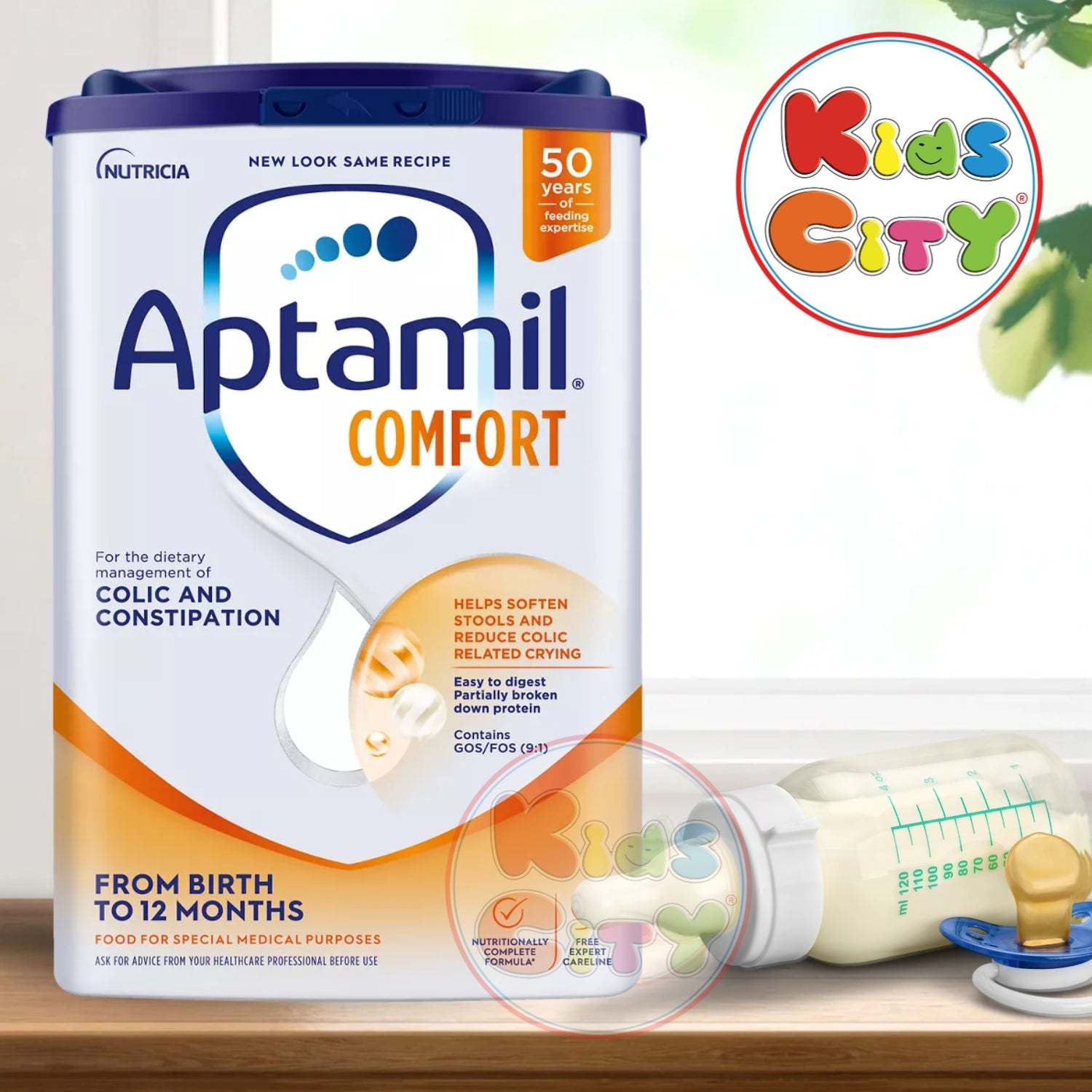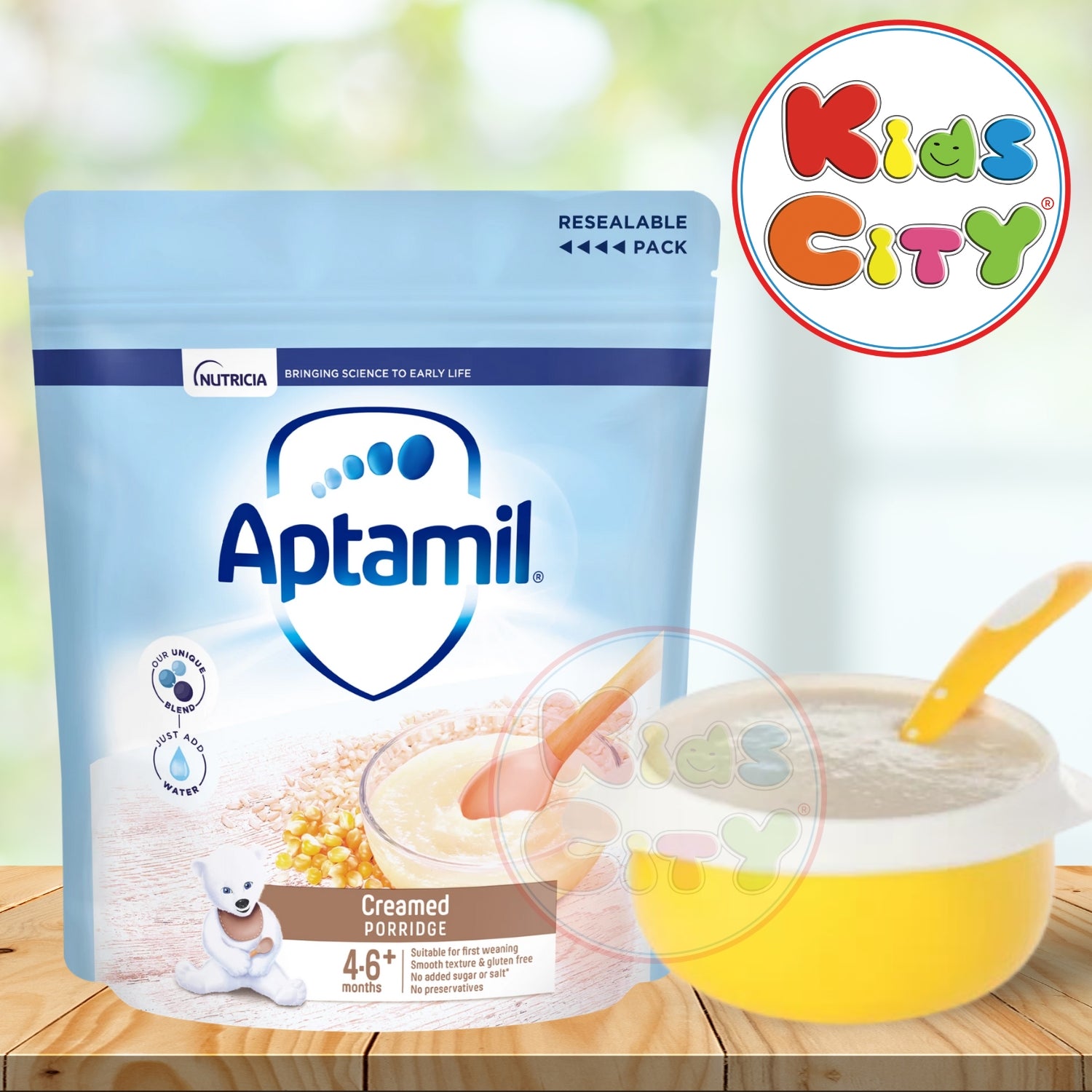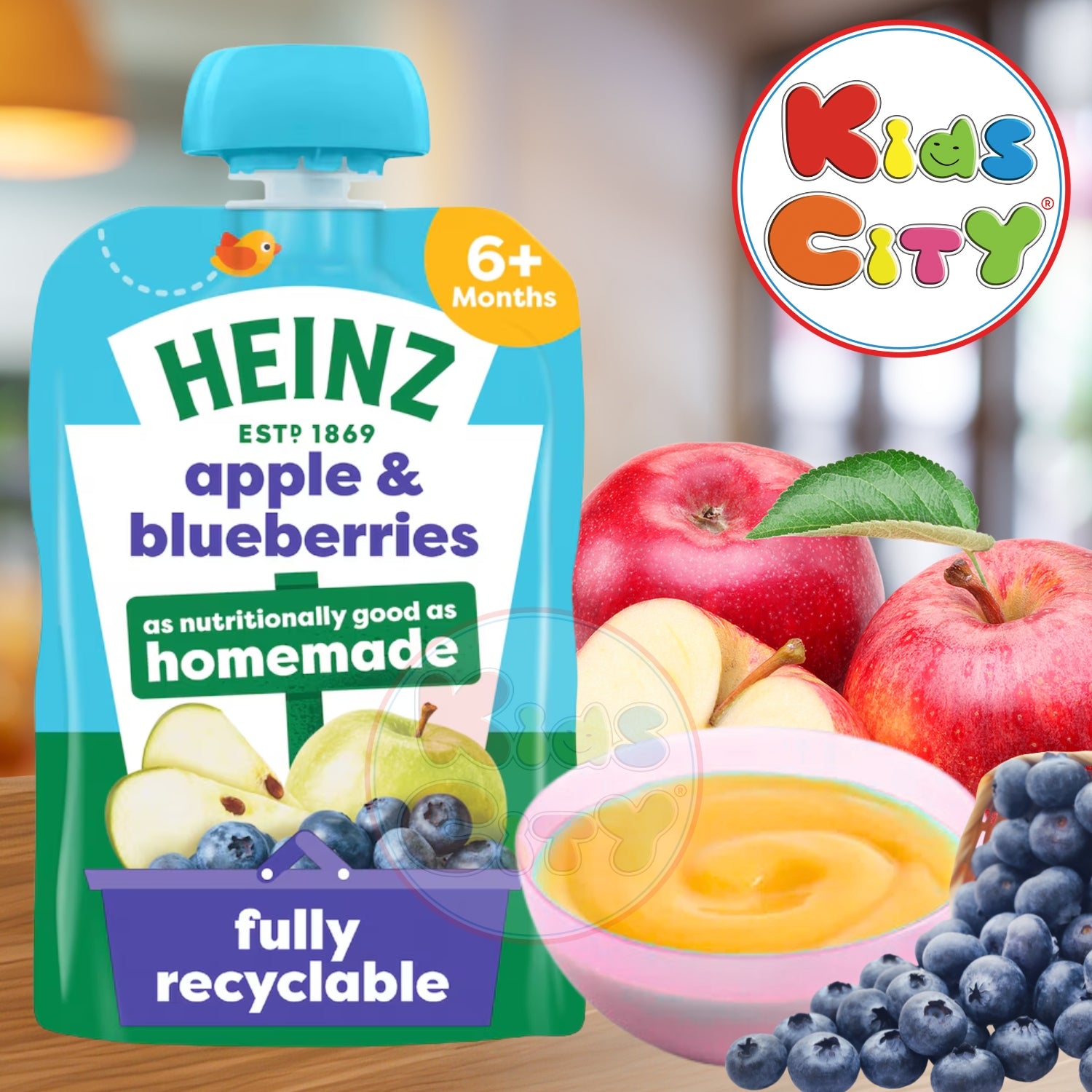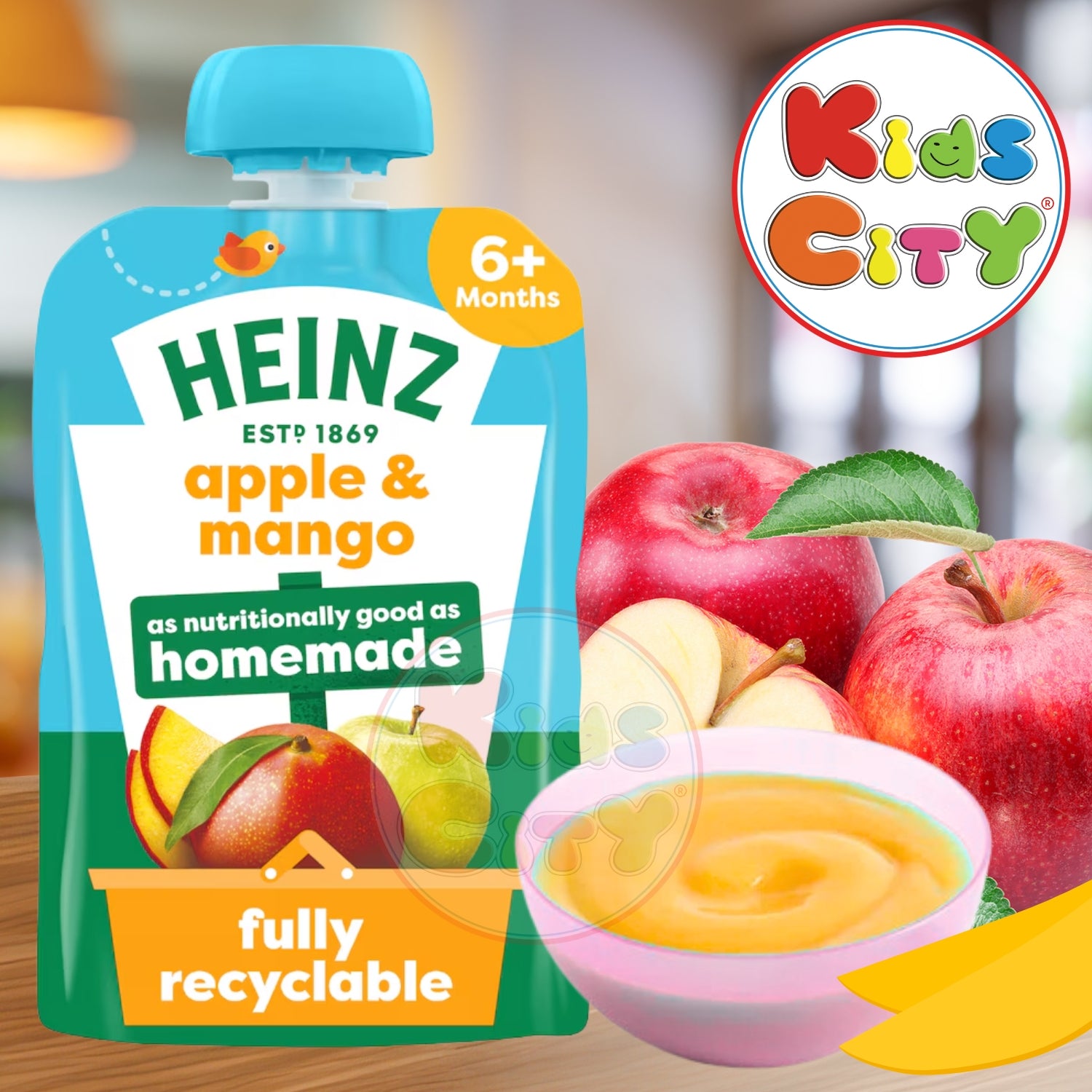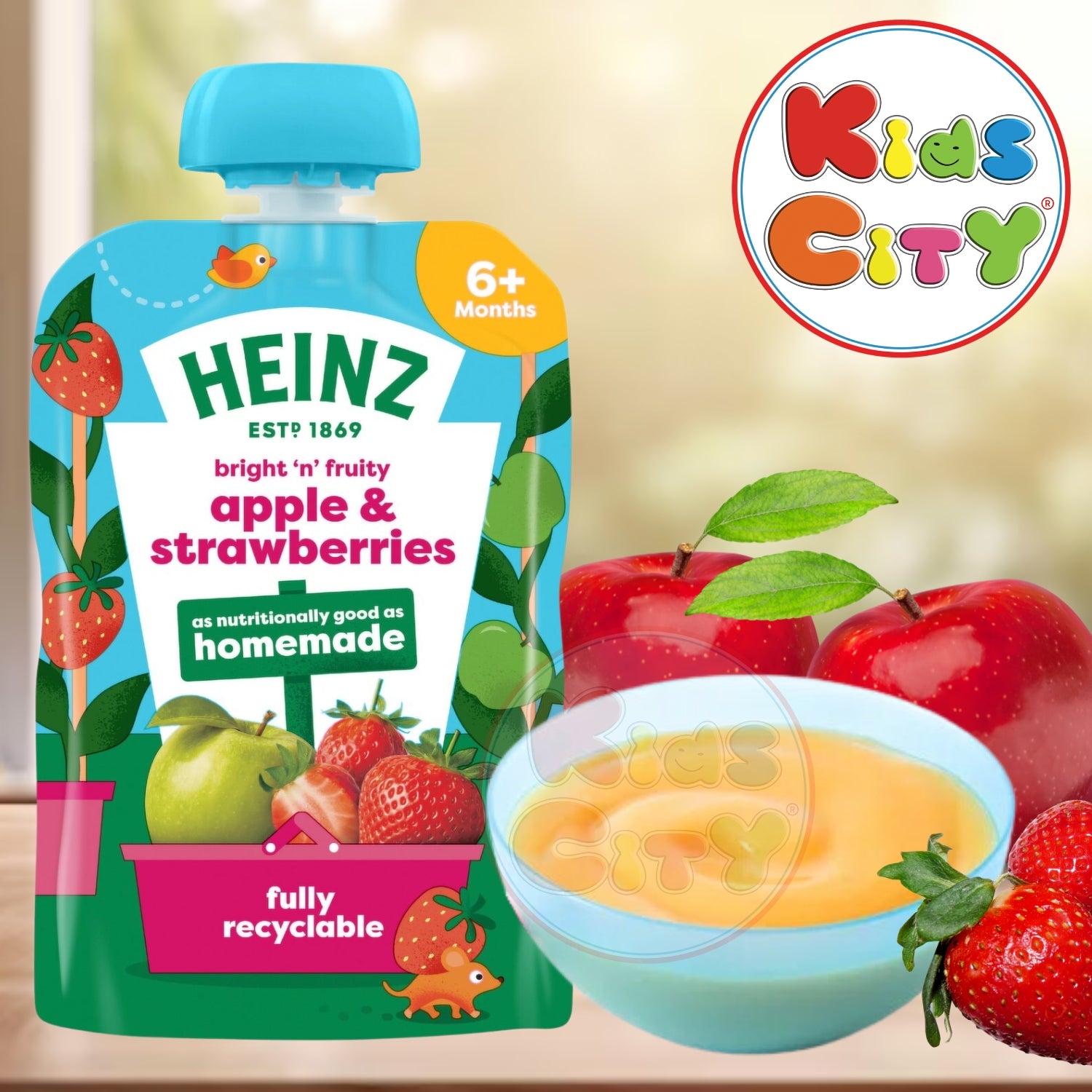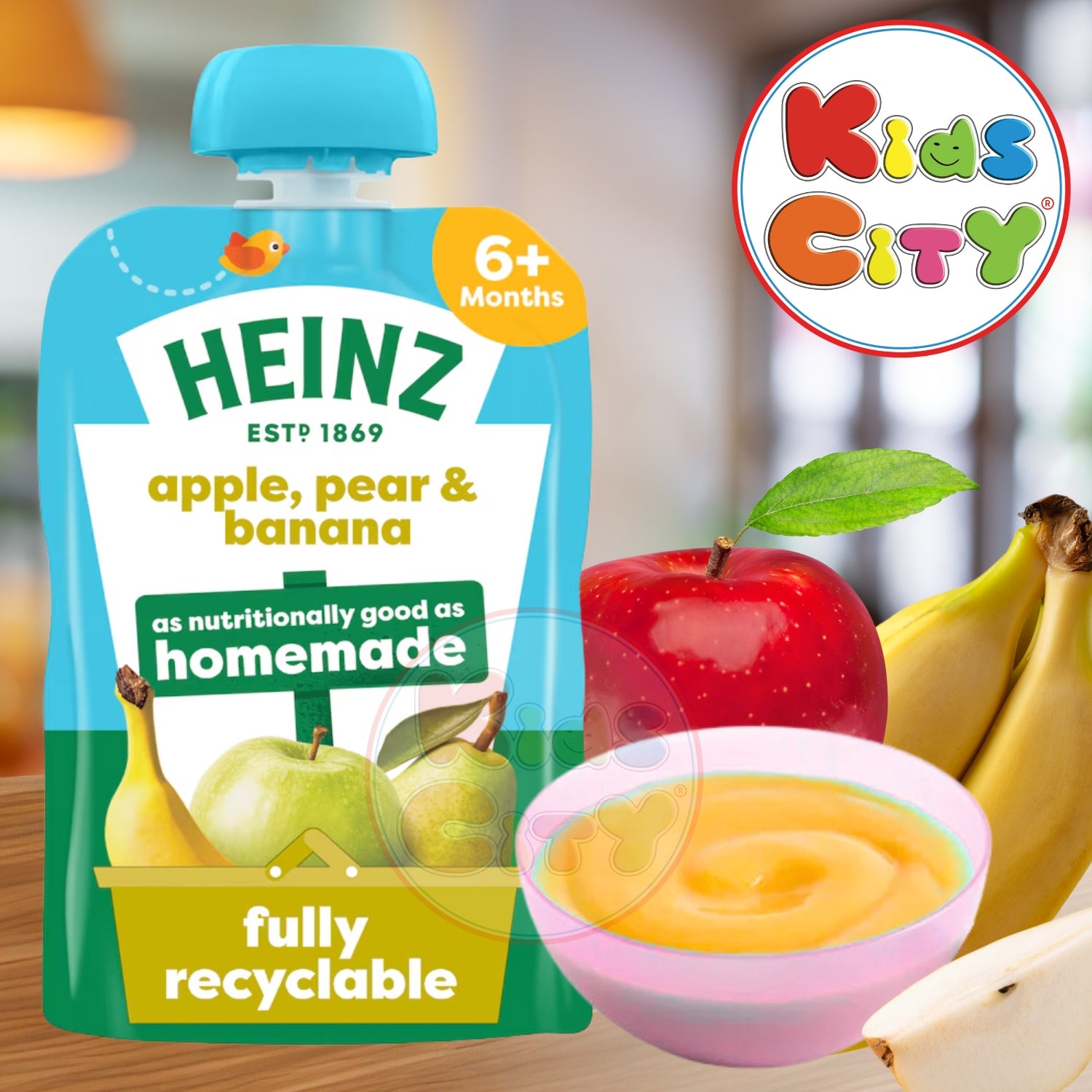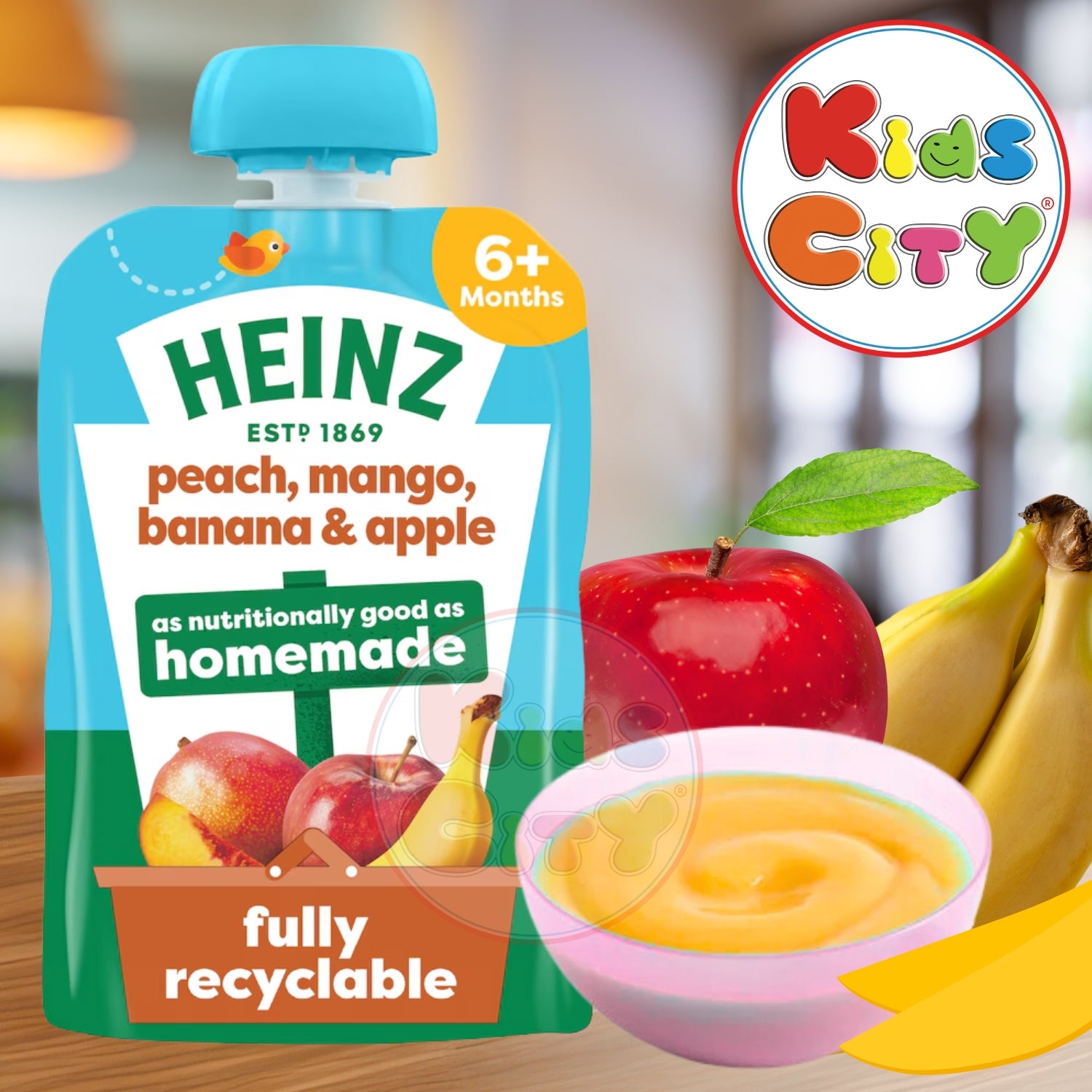-
Baby Foods
- Milk Formulas
- Baby Cereals
- Baby Snacks
- Baby Purees
- Bath & Skin Care
-
Brands
- Aptamil
- Cow & Gate
- Ella's Kitchen
- Enfamil
- Enfagrow
- Gerber
- Heinz
- Hipp Organic
- Kendamil
- Kiddylicious
- Nestle
- Nannycare
- Organic Mamia
- Organix
- Pediasure
- Similac
- SMA
- Aquafresh
- A+D
- ASDA
- Aveeno
- Banana Boat
- Bonjela
- Colgate
- CeraVe
- Crest
- Desitin
- FireFly
- H&A
- Hansaplast
- Heal
- Johnsons
- Jordan
- Kobayashi
- Lansinoh
- Loreal
- Mahahing
- Oral-B
- Sensodyne
- Suave Kids
- Sudocrem
- Tesco
- Tiger Balm
- Vaseline
- Wells
- SALE
Your cart is empty
Looks like you haven't added anything to your cart yet

Top 10 High Fiber Rich Foods for Babies
Is your baby struggling with constipation after starting solids? You're not alone—many parents face this common challenge. The good news is, introducing fiber to your baby's diet is a great way to support healthy digestion and prevent tummy troubles. Once your little one starts solids, adding natural fiber-rich foods like pears, avocados, prunes, vegetables (such as carrots, peas, and spinach), sweet potatoes, oats, apples, lentils, bananas, and brown rice can help keep their tummy happy and their gut strong.
Why Fiber Is Important for Babies
Fiber is an essential part of a baby’s diet once they start eating solids—usually around 6 months of age. Fiber helps your baby digest food properly, keeps their bowel movements regular, and supports the growth of healthy gut bacteria. It also prevents constipation, which is common in babies when they begin eating solids. Let’s explore the best high-fiber foods that are both gentle and nutritious for your little one.
1. Pureed Pears

Why It’s Great: Pears are naturally sweet and soft, making them a perfect first food for babies. They are rich in both soluble and insoluble fiber, which supports digestion.
Gut Health Benefits: Pears help soften stool due to their fiber and sorbitol content. This makes them ideal for easing constipation and keeping your baby’s tummy comfortable.
Serve: Steam and mash or blend into a smooth puree. Suitable from 6 months.
2. Mashed Avocado

Why It’s Great: Avocados are creamy, nutrient-dense, and packed with fiber and healthy fats, making them a superfood for babies.
Gut Health Benefits: Avocado’s fiber content promotes smooth bowel movements and supports the gut lining, while healthy fats help absorb vitamins.
Serve: Mash ripe avocado with a spoon. No cooking needed! Safe from 6 months.
3. Cooked Prunes

Why It’s Great: Prunes are one of the most effective natural remedies for baby constipation. They’re loaded with fiber and antioxidants.
Gut Health Benefits: Prunes contain sorbitol, a natural sugar alcohol that pulls water into the colon, helping soften stools and ease bowel movements.
Serve: Soak dried prunes in hot water, then blend into a smooth puree. Start at 6–7 months.
4. Steamed Vegetables (Carrots, Peas, Spinach)

Why It’s Great: Vegetables are rich in fiber, vitamins, and minerals that help overall growth and immunity.
Gut Health Benefits: Vegetables support healthy digestion by feeding good gut bacteria and adding bulk to the stool. Spinach, in particular, is iron-rich and helps keep the digestive tract moving.
Serve: Steam until soft and puree or mash. Start with carrots and peas from 6 months; spinach after 7–8 months.
5. Sweet Potatoes

Why It’s Great: Sweet potatoes are naturally sweet, soft, and easy to digest. They're high in fiber, beta-carotene, and potassium.
Gut Health Benefits: The fiber in sweet potatoes helps with stool regularity and feeds beneficial bacteria in the gut, keeping your baby’s tummy happy.
Serve: Boil and mash into a smooth puree. Suitable from 6 months.
6. Oats (Baby Oatmeal)
Why It’s Great: Oats are a gentle whole grain, high in soluble fiber and easy on little stomachs.
Gut Health Benefits: Oats contain beta-glucan, which supports healthy digestion and encourages the growth of good bacteria in the baby’s gut.
Serve: Cook baby oats in water or breastmilk until soft. Safe from 6 months.
7. Apples (Cooked & Peeled)

Why It’s Great: Apples are rich in pectin, a type of soluble fiber that aids digestion. Always serve peeled and cooked for easier digestion.
Gut Health Benefits: Pectin helps form a gel-like consistency in the stomach, supporting gut health and improving stool consistency.
Serve: Peel, steam, and mash into a puree. Begin at 6 months.
8. Lentils (Masoor Dal)

Why It’s Great: Lentils are rich in protein and fiber, making them ideal for baby’s growing body and digestive health.
Gut Health Benefits: They help bulk up stool and improve bowel movements. Lentils also support the gut microbiome by feeding beneficial bacteria.
Serve: Cook until very soft and mash well. Start with yellow or red lentils from 7–8 months.
9. Ripe Bananas

Why It’s Great: Bananas are easy to mash and packed with nutrients, especially potassium and dietary fiber.
Gut Health Benefits: They contain pectin, which helps balance digestion and feed good bacteria. Ripe bananas can help ease mild constipation.
Serve: Mash a small ripe banana. Serve plain or mix into porridge. Safe from 6 months.
10. Brown Rice or Whole Grain Cereal

Why It’s Great: Whole grains like brown rice or multigrain baby cereal offer a good source of dietary fiber and energy.
Gut Health Benefits: The fiber in whole grains keeps digestion regular and improves the consistency of baby stools.
Serve: Cook rice until very soft and mash/blend. For cereals, mix with warm water or milk. Ideal from 6–7 months.
Top High Fiber Foods for babies Age Wise
Is your toddler constipated? Looking for natural ways to improve digestion? Fiber-rich foods help toddlers poop better, feel better, and grow stronger. Here’s your complete age-wise guide to high fiber foods for toddlers, including snacks and homemade meal ideas.
1. High Fiber Foods for 6-Month-Olds
At 6 months, babies are just starting solids. Keep foods soft, smooth, and easy to digest.
- Little Bellies Organic Carrot & Butternut Squash Puree Cubes
- Pureed pears – gentle and slightly sweet
- Mashed avocado – soft and full of good fats + fiber
- Pureed prunes – nature’s constipation relief
- Spinach + apple puree – adds iron + fiber
- Oatmeal cereal – warm, smooth and filling
Tip: Add breast milk or formula to adjust consistency.
2. High Fiber Foods for 8-Month-Olds
Now your baby can try slightly more textures. You can mash food instead of pureeing.
- Little Bellies Organic Sweet Potato, Carrot & Brown Rice Cubes
- Mashed banana – easy to digest and rich in fiber
- Pureed apple (peeled) – helps soften stool
- Cooked and mashed lentils – great protein + fiber
- Mashed carrots – sweet and toddler-friendly
- Green bean puree
- Smashed raspberries – mild and high in fiber
3. High Fiber Foods for 10-Month-Olds
- Little Bellies Apple, Oats & Strawberry Puree Cubes
- Soft-cooked peas
- Mashed strawberries or blueberries
- Cooked black beans (mashed slightly)
- Whole grain toast (cut in small pieces)
- Beetroot puree – vibrant color and packed with fiber
4. High Fiber Foods for 12 Months & Beyond
Now your toddler can eat small bites of family meals. Introduce variety and more texture.
- Oatmeal or barley cereals
- Whole grain toast with nut/seed butter
- Small pieces of fruits (melon, peaches, pears)
- Cooked wheat berries or quinoa
- Soft-cooked broccoli, cauliflower
- Beans (mashed or whole depending on chewing ability)
Easy, Fiber-Rich Snacks for Toddlers (6+ Months) Homemade Options
Fruit Smoothies: Blend berries, yogurt, spinach, chia seeds – freeze into pops or serve chilled.
Nut/Seed Butter on Toast: Spread almond, peanut, or sunflower seed butter on pear slices or bread.
Roasted Chickpeas: Crunchy, yummy, and fiber-loaded. Add a pinch of cinnamon for taste.
Avocado Toast Strips: Mash avocado on whole grain toast, cut into baby-sized strips.
Raw Veggie Spears with Hummus (12+ months): Serve soft veggie sticks like cucumber or zucchini with a dollop of hummus.
Baked Sweet Potato Fries: Roast in coconut oil. Soft inside, slightly crispy outside.
Chia Seed Pudding: Mix chia seeds with coconut milk and fruit puree. Set in fridge overnight.
Adding high fiber foods for toddlers doesn’t have to be hard. Start age-appropriate foods slowly, add water, and offer a mix of fruits, veggies, legumes, grains, and seeds.
- Choosing a selection results in a full page refresh.

